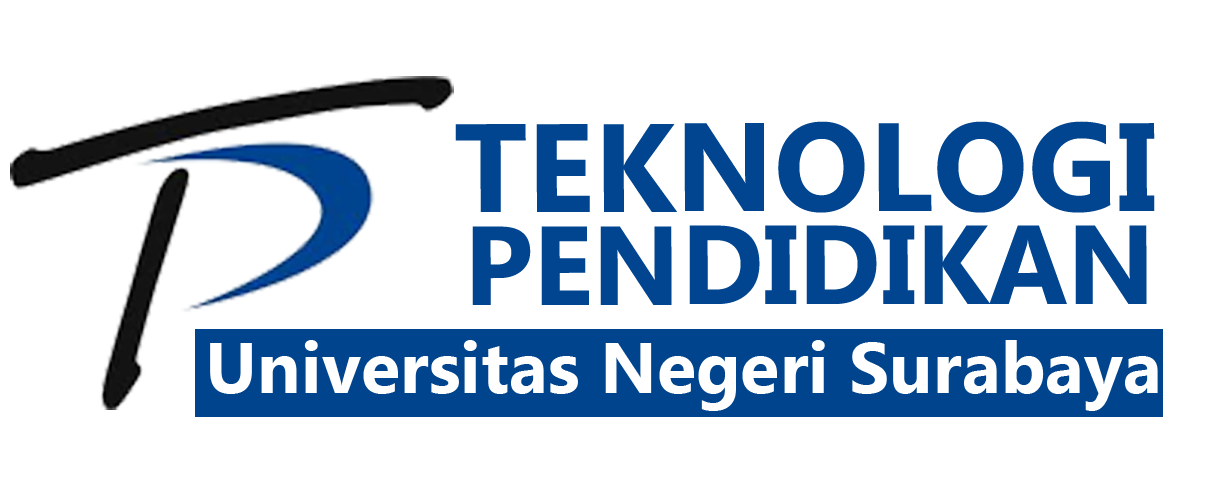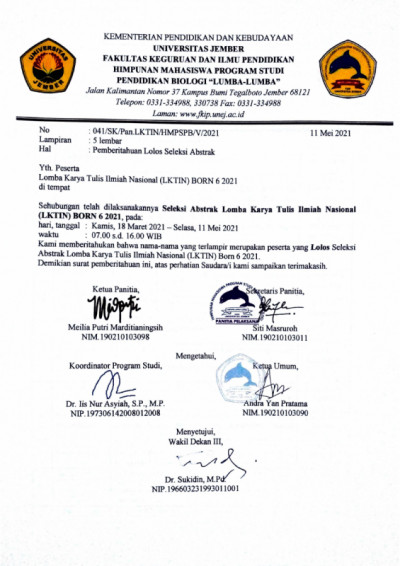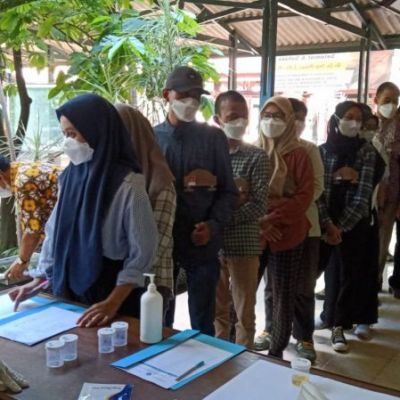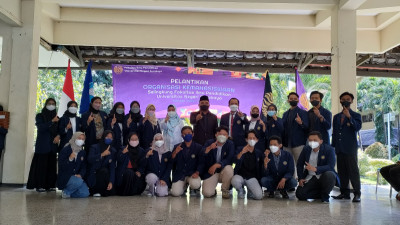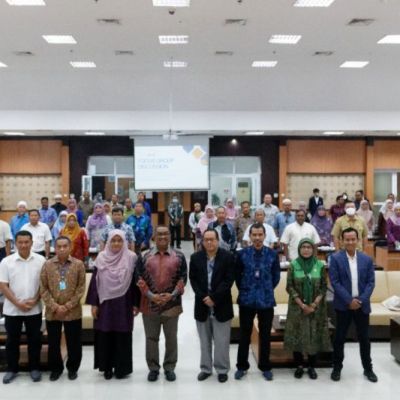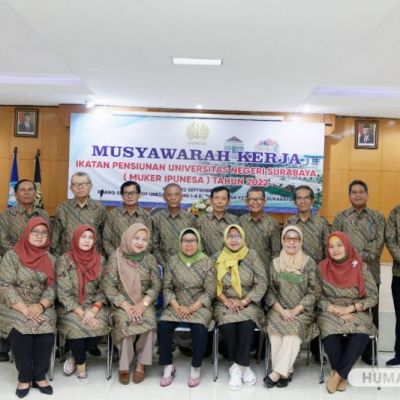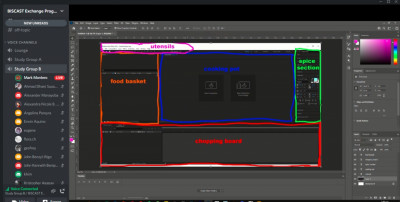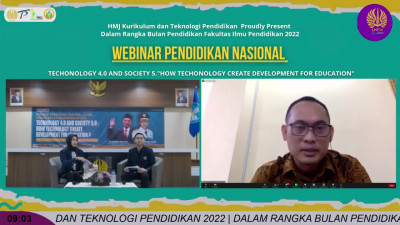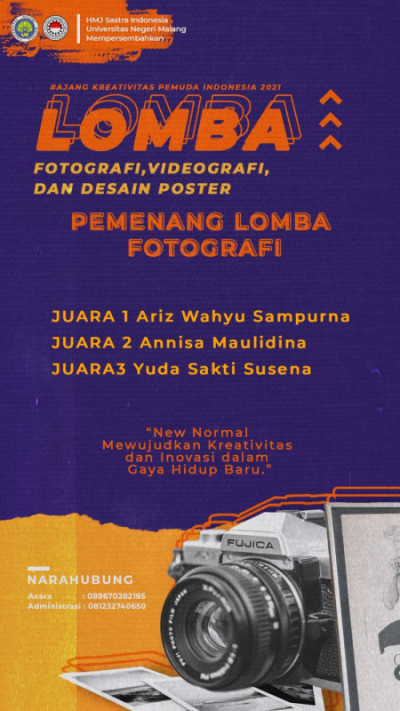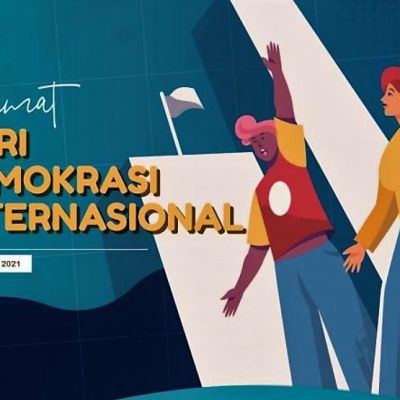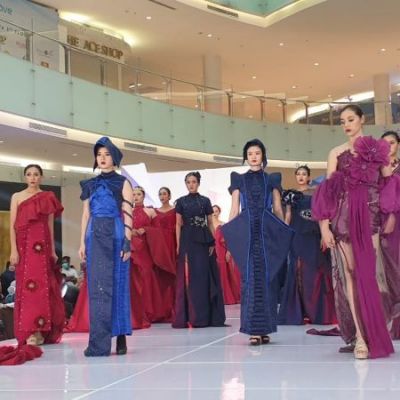Unesa.ac.id, SURABAYA–Surabaya State University (UNESA) encourages teachers to continue to improve their abilities. In addition to being able to teach students, teachers are also required to be able and creative in writing scientific papers.
Well, the problem is, not all teachers are accustomed to writing. For this reason, the Faculty of Language and Arts (FBS) UNESA facilitates teachers of SMP and State MTS in Surabaya to produce works through collaborative research-based scientific writing training at SMPN 28 Surabaya, Thursday (15/9/2022).
FBS Dean, Dr. Trisakti, M.Sc., said that the activity was part of the community service program. Of course, this is a manifestation of the implementation of the tridharma of higher education which aims to equip teachers so that they can produce scientific works.
“In addition to theoretical provisions, teachers are also provided with practical skills in the form of ways to find ideas, how to write, to publication in scientific journals. Therefore, apart from training, there is also assistance,” he said.
This event was attended by Dra. Hj. Endah Purnomowati Nurhasan, M.Pd., Chair of the UNESA DWP. He hoped that the teachers could not only write but also apply Indonesian properly and correctly in their writing.
Researchers from the Research and Development Agency (Balitbang) East Java, Yudianto Tri Kurniawan, ST, S.Mn., M.Sos., MM., were present as presenters. He explained that research-based learning aims to create learning methods that are more focused on analysis, synthesis and evaluation activities as well as improve the ability of students and teachers in terms of assimilation and application of knowledge.
The benefits of research-based learning, namely, increasing the capacity of students such as critical thinking, analytic, evaluative and solutive. In addition, the implementation of evaluation in research is able to help improve professional development that prioritizes innovation and excellence.
"For now we are focusing on writing assistance for teachers, because most of them still lack experience in writing scientific papers," he said.
Chief executive, Dr. Anas Ahmadi, S.Pd., M.Pd., explained the agenda for the collaborative research, including writing journal articles, and designing student research activities or KIR.
In addition, module development, textbook development, student and teacher research assistance books, student and teacher competition assistance, as well as collaborative research with national funds, provincial government, PT and others. [HUMAS UNESA]
Author: Saputra
Editor: @zam Alasiah*
Photo : PKM Team Documentation
Presenting Research and Development Research and Development of East Java, FBS Trains Middle School Teachers in Writing Scientific Papers
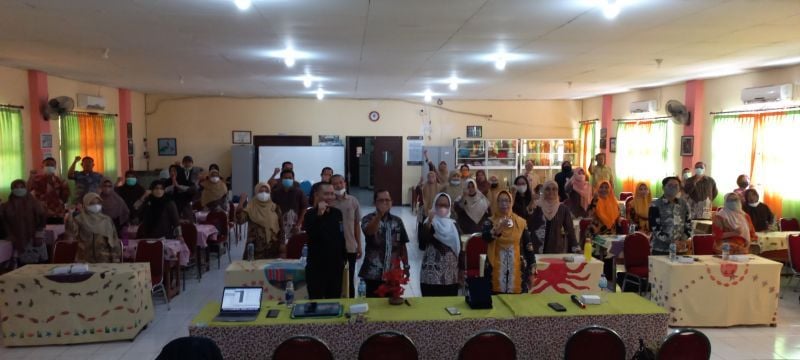
17 September 2022
